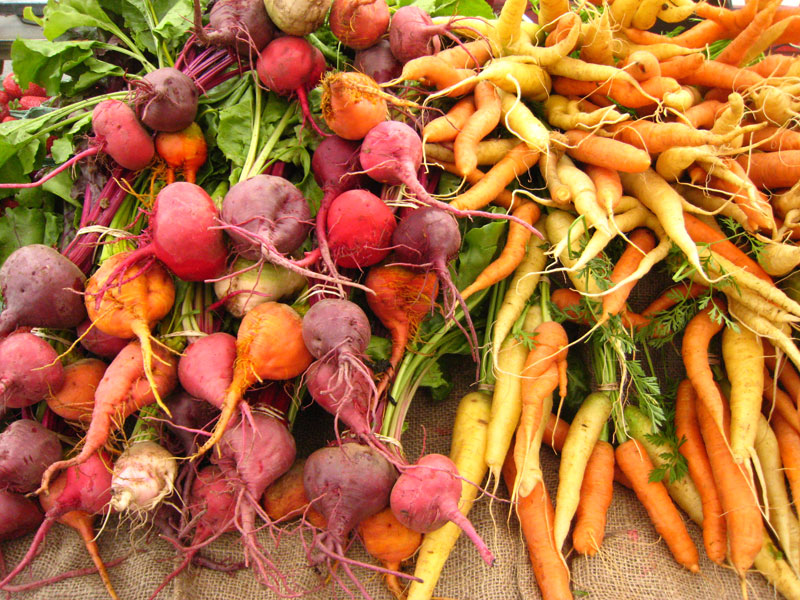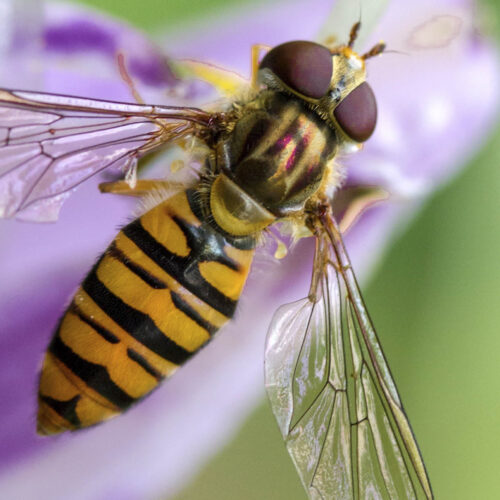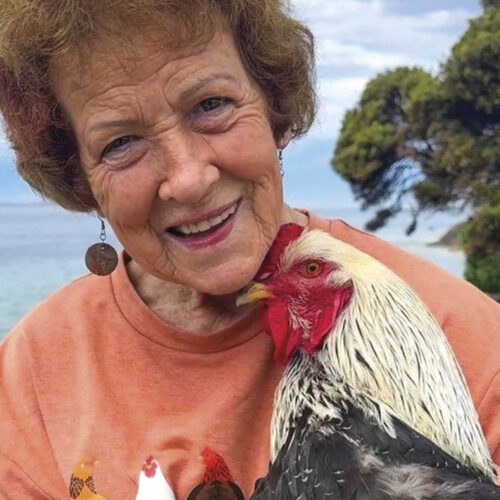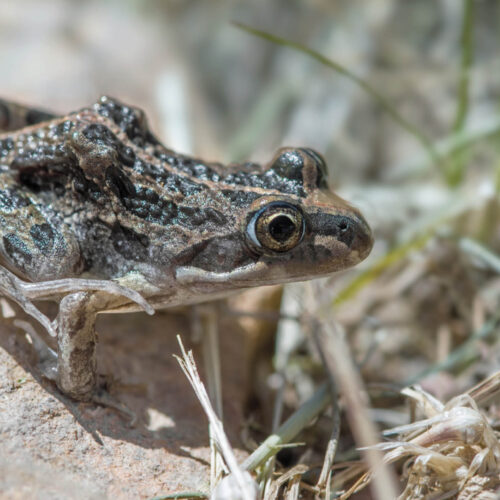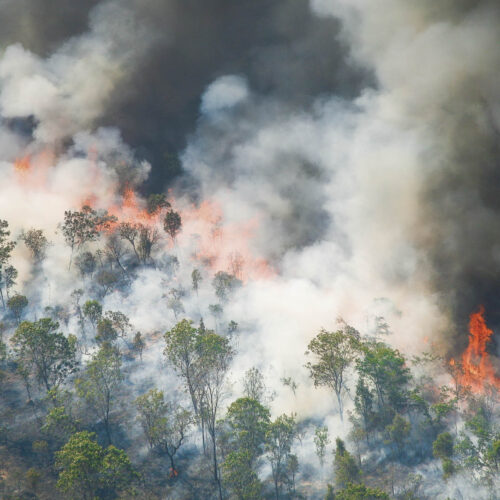The key to sustainable farming
2009-12-22T03:17:47+11:00
Organic farmer and author, Michael Ableman, wants to see honour return to the art of farming, and every local community growing food.
It was a lucky accident, that happened when I was working at an environmental organisation in Vancouver, Canada. I was interested in organic gardening, but only just getting my feet wet. Straying from my desk for a break one afternoon, I ducked into a nearby public meeting where designs were being hatched for an urban agriculture project. I was immediately struck by the speaker, Michael Ableman, a leading figure in the sustainable agriculture movement in North America. He cautioned the audience that developing land for growing food was only useful if people were willing to do the work. Much of his work, he said, was about dispelling the notion that there’s no money, honour or art in farming.
This sounded like an invitation to speak. I explained that I was in my 20s and keen to learn about organic growing, but wasn’t sure where to start. Thus began my summer interning at the farm of Michael Ableman.
Multi-talented leader
As a farmer, Ableman is best known for his leadership of the Centre for Urban Agriculture at Fairview Gardens in southern California. From 1981–2001, his team rejuvenated a five-hectare parcel of land, generating up to $US1 million in annual revenue and connecting with the local community through education programs and festivals. The farm was eventually saved from urbanisation by a ground-breaking conservation agreement.
Ableman has received a number of accolades, including the Steward of Sustainable Agriculture Award from the Ecological Farming Association, but he is also an accomplished photographer, writer and speaker. He travelled the world capturing images of how people from different cultures farmed for his book X From the Good Earth: A Celebration of Growing Food Around the World X. His latest book, X Fields of Plenty: A Farmer’s Journey in Search of Real Food and the People Who Grow It X, recounts an epic road trip he took with his son to meet and eat with unique farmers across North America.
As I learned of Ableman’s accomplishments, I wondered if interning with him was going to be like playing for a first-grade footy team only one day after picking up the sport.
Our only ship at sea
Ableman’s Foxglove Farm is a stunning 48-ha organic property on one of the original homesteads of Salt Spring Island in British Columbia. Popular with tourists, the island is 90 minutes by ferry from Vancouver and home to a number of artists and craftspeople.
I was curious about Ableman’s shift north to Canada, and to an island no less. He told me that after 25 years of farming five hectares in California, engulfed by shopping malls, he was drawn to a piece of land with endless space.
“It’s surrounded by protected forests, a pristine lake and has incredible wilderness, incredible history,” he says. “It was an opportunity to live a new and different life as a farmer.”
Living on a small island, Ableman explains, “forces you to think about the impact of your actions in a direct way. There’s no great land mass to absorb your actions into anonymous ripples. As my friend David Brower [the pioneering environmental activist] put it, we all have to start thinking like Earth is our only ship at sea.”
Although in my time at Foxglove he often proved to be elusive, Ableman most certainly led by example. Whether it was seeding beets and carrots, turning the compost, or loading the trailer for the market at 5am, he moved with a purpose and skill that was inspiring and daunting at the same time. Many of his skills, he told me, were picked up managing orchards on a commune in the 70s.
Variety is key
Diversity is a main theme of Foxglove’s plantings. From just over 14 hectares in production the farm produces over 50 different fruits and vegetables for the bi-weekly island market and for select stores and restaurants. There’s a range of annual Mediterranean staples, including 12 varieties of tomatoes, and plenty of greens and roots. There are rows of strawberries, raspberries and blueberries, with orchards of peaches, plums, apples, pears, quince, persimmon, figs, chestnuts and cherries in development.
Ableman likes to offer produce that would be hard to source locally. Foxglove grows over 20 varieties of capsicums, white asparagus, French Charentais melons, and four hectares of pulses and grains. Indeed, although there are a number of market gardeners on the island, Ableman is the biggest commercial producer. It was clear he was a running a business but also obvious that one of his intentions was to inspire fellow farmers and residents to cut the island’s reliance on imported food.
“The biggest issue with food is not genetic engineering, pesticides, or soil loss. They are just symptoms of the problem”, Ableman offers. “What we have is a crisis in participation. A tiny fraction of the world is attempting to feed the rest of us, so they do crazy things. We need to come back to ourselves, our families, our local community. This is the ultimate solution to the food crisis. I look forward to the day when individuals and families put farmers out of business by growing their own food.”
Reaping rewards
Efficiency is the name of the game at Foxglove. With light rains a certainty over most of the year, high-value crops such as strawberries and tomatoes receive cover in hoop houses and are prioritised for irrigation. Raspberries are grown on specially designed adjustable trellises to help fruit set and make harvesting easier. Aside from a tractor and lawnmower, the bulk of the work is manual.
With a staff of less than five, proper technique is not only stressed, but essential. I was often gently reminded that my pace needed to improve or that my positioning could be more productive. Picking strawberries was a good example. It took a lot of practice to twist and snap the right way, and to carry a flat of punnets under my arm as I moved. Ableman, in his 50s, was working at least five times faster than me.
Harvest days were particularly gruelling, starting at 6am and sometimes lasting until 10pm. On these occasions I not only found the limits of how many strawberries I could eat, but also how much strain my back could take. As words of encouragement, Ableman told me that although the work is demanding and one’s spirit is often tested, there are always beautiful moments that keep you hooked.
Educating tastebuds
For me, some of those moments came while in the fields, where I had been vastly underrating the company of the trees and sky my whole life. Many also came at the dinner table. My tastebuds will never be the same. Meal after meal of simple, fresh produce created in me a great passion for peasant food – dishes in which the food is the star, not the chef.
Another site of valued lessons was the market, where Ableman features the most eye-catching produce, piling stacks of root crops high and arranging the stand so customers can flow through. Customer interaction is key. Lots of samples are offered with a playful dose of charisma, perfected by his son Aaron who routinely proclaims the stand as the home to the “Charlie Parker of beets”. Ableman is unapologetic about his relatively high prices, arguing that they reflect the cost of growing the food and allow for a living. The stand was nearly always the busiest of the market.
Art of farming
Art and expression were woven into all facets of work at Foxglove – from the way rows of vegetables were arranged, to the musical talents of the frequent visitors. In fact, one of the biggest surprises of my time there came at the farm’s annual festival. I was enjoying homemade raspberry ice-cream when children’s music entertainer Raffi rocked up and soothed the crowd with a set of his famous tunes.
It was no surprise then that this year Ableman launched the Centre for Art, Ecology & Agriculture at Foxglove. The centre’s goal is to demonstrate the connection between farming, land stewardship, food, the arts and community wellbeing. The program brings in well-known writers, artists, musicians, foresters and ecologists to lead short retreats.
Observe
“The most fundamental skill to arts and farming is the same – observation”, says Ableman. “In art you observe, edit, select, create, re-create. In farming, you have to pay attention to stay on track. You have to look at your fields and read them just like you read a book. I’m thinking as an artist and a farmer through every stage of the process. When I’m buying seeds, I’m thinking about what it’s going to look like on the display stand at the market. People eat and buy with their eyes.”
Ableman suggests that when people start to see farming as an art form, then we will have achieved a shift in the food system.
Among the most intriguing conversations I had at Foxglove was about what the real sacred arts of the world are. How, as a society, we’ve somehow lost sight of pursuits that are important. After spending a season immersed in the busy work of Michael Ableman, it is clear he is doing his best to place sustainable organic farming among those arts.
“Twenty-five to 30 years from now, someone else will be working this land”, Ableman tells me. “What matters is if we leave the land better than when we found it, using our time to feed the land and the community. To realise that we are all just passing through, and what remains is the land.”
For more information about Michael Ableman, his life, work and his books, go to michaelableman.com

